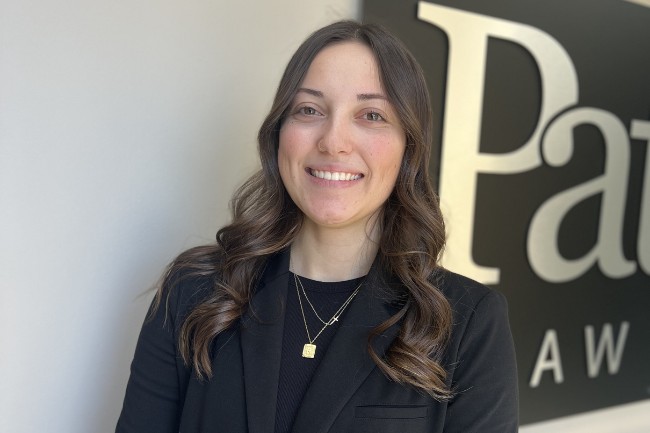Under any circumstances, moving can be stressful and somewhat chaotic. There are a whirlwind of things to plan for, and expenses rack up quickly. Simply speaking, transitioning from one place to another is hard work.
But for our aging loved ones, that stress could be mixed with feelings of anger and sadness. Many older adults who have to leave their homes see this transition as a loss of freedom and control because they’re forced to leave behind the life they worked hard to gain for decades.
Therefore, it’s important that you understand the toughness of the transition and do your best to make the process as easy and painless as possible.
Our clients at Paths Elder Lawtrust us because we’ve seen it all when it comes to caring for your elderly loved ones. We are experts in helping people manage the twists and turns life can throw, including moves to nursing homes or assisted or independent living.
You don’t have to go through this alone.
Our team of elder law attorneys and eldercare professionalsare here to help. Read on to learn how to transition aging loved ones to nursing home, assisted or independent living in Kansas City.
*This blog is for educational purposes only and should not be considered legal advice. The use of the Paths Law Firm website does not constitute a client-lawyer relationship.
Step One: The big decision
Deciding to move your aging loved one isn’t an easy feat, but despite how difficult it is, you shouldn’t hold off. Take the time to understand your loved ones’ needs for healthy living.
Are they properly taking care of themselves? Do they seem happy? Do they have the mental and physical capacity to live on their own?
These are all questions you should consider when juggling the choice to transition your loved one out of their home and into a nursing home, assisted or independent living.
Know the signs
You may be asking yourself, should I move my mother to assisted living? If you don’t know the signs of aging, you’ll never find your answer.
7 Tips to Help Transition Mom From a Home to an Apartment
To keep things simple, all people need to be able to complete these six daily functions to be considered independent:
- Getting out of bed
- Going to the bathroom
- Controlling the urge to go to the bathroom
- Bathing
- Dressing
- Eating
You can monitor your loved one to see how well they are doing with these functions. This may take some time, especially if you’re not around on a regular basis. If you’re able, talk to your loved one’s neighbors and friends to get more insight. Oftentimes they will be a reliable source of information while you’re away.
Monetary problems
A big part of maneuvering through life is the ability to pay bills, taxes, and purchase necessities. Unfortunately, elderly adults begin to lose this ability as they age. Medical issues such as dementia can hinder them from remembering even small financial tasks. Basic math can become hard to calculate, which in turn leaves them vulnerable to mistakes. Bills may pile up, leaving your loved one trapped under a financial strain they simply can’t handle.
If you begin to notice that your loved one is losing control over their finances, it may be a sign that they need to move somewhere they’ll no longer have to worry about money. The last thing you’d want is for some family member or friend to scam them.
You can always schedule an appointment with an elder law attorney to help you protect your loved one’s finances and other assets.
Isolation
It’s normal to want to be away from people every once and awhile, but humans are a social species. We need interaction with others to maintain our peace of mind. However, older adults may begin to isolate themselves from family and friends. This could be to hide symptoms of aging or because they no longer can be social without assistance.
Isolation can come in many forms, but some common signs we’ve seen with our clients at Paths Law Firm include:
Depression.Your loved one might feel hopeless and depressed without a sense of community. Depression could also be an indicator of other health conditions such as dementia.
Addiction.To dull the feeling of loneliness, some older adults may adopt bad habits such as excessive drinking or prescription drug abuse.
Loss of interest. Notice if your loved one has stopped doing the things they once enjoyed. If they begin isolating themselves, they pull away from their usual activities.
Messy living area
There comes a time when an elderly adult can no longer take care of their home. This is usually due to their physical inability to move around the way they need to. Whenever you can, visit your loved one to see how he or she is living. A dirty home can lead to bacteria infestations and a hosts of diseases that could leave your loved one vulnerable to major health risks.
Poor hygiene
It’s important that all independent people are able to cleanse themselves. If you begin noticing an odor coming from your loved one, they may not be able to do the basic function of bathing. Embarrassment could cause them to suffer in silence rather than speaking up.
Caring for aging parents checklist
Step Two: Time to plan
Once you’ve determined that your aging loved is best cared for in a nursing home, assisted living or independent living, you should make a detailed plan outlining your next steps. This is a big decision that shouldn’t be left to the wind.The more you plan, the better you can prepare. And the better you can prepare, the easier the transition will be for everyone.
Remember that this could be a distressing time for your loved one. The loss of control and independence takes time to admit and accept. Be patient and empathetic during this time.

Find a facility
The goal should be to find the best nursing home, or assisted or independent living place for your aging loved one, a place where they can thrive and live happily. Senior living comes in many forms, so you want to understand the specific needs your aging loved one has before making the decision.
Get advice
If you have a support system, use it. Never try to go about this on your own hunch if you don’t have to. The best people to give you advice are doctors, other family members, your loved one’s friends, and elder law attorneys. You’ll want to talk with them about what kind of facility would best benefit your loved one. This will include understanding their physical, mental, and medical support needs.
Types of facilities
Nursing homes: Nursing homes provide 24/7 care to residents who need more in-depth care. This will be for someone who needs constant support and help, and all nursing homes require a Registered Nurse to oversee their residents.
Assisted living: Assisted living homes are similar to nursing homes in terms of constant care, but usually people who are in assisted living can still do some daily functions on their own.
Guide to Transitioning Your Aging Loved to Assisted Living
Independent living: Independent living is a great option for someone who doesn’t need much assistance or medical help. Independent living is more like living alone, but with a greater sense of community.
Collaborate with your loved one
The most important thing you can do is to involve your loved one in the facility choosing process. They’re the ones who are going to have to live there, not you. So you want them to feel in control of their life decisions.
You can do this by taking tours of different facilities with them. Ask them what they like and don’t like. Find out what they prefer in their next home. At the end of the day, it’s their preferences that matter.
How to talk to aging loved ones
Create a budget
Moving costs money, but if you make a budget, you’ll be able to better manage how much you spend. This comes with understanding average costs of the type of facility you choose, factoring in additional medical expenses, and calculating general moving fees.
Research your options that’ll help you pay for the new housing. Options may include:
- Insurance
- Medicaid
- Medicare
- Veteran’s benefits
- Reverse mortgage
- Personal funds
- Other family members
You don’t want to dig yourself in a financial hole when transitioning aging loved ones to new housing in Kansas City and they likely wouldn’t you to.
Note: Once you come up with a logical budget that you can follow, be sure to stick to it and only stray if absolutely necessary.
Get legal affairs in order
Part of planning is to start making legal decisions. Finding an elder law firm that thoroughly understands elder care is crucial. Paths Law Firm is the best elder law firm in Kansas City to help you plan to transition your aging loved one to new housing.
Services we offer:
Step Three: Finalizing the move

The final step to transition aging loved ones to new housing in Kansas City is the move itself. By this point everything else should be ready to go, and all that’s left is the transition.
Before the move
Clean and organize the house
Whether you’re putting your loved one’s home on the market or keeping it in the family, before the move is the perfect time to clean up and do general maintenance.
It may be hard for your loved one to get rid of old items, so go through things with them. What is valuable? What can be given away? Do some items need to go to storage? Take your time with this process, because some items are memories and have been collected throughout the years.
Start packing in advance
Don’t wait until the last minute to start packing. This will only leave you rushing and stressed. If you pack throughout the span of weeks or even months rather than days or hours, you’ll find that the process is a lot smoother for everyone involved. That’ll also give you more time to continue to organize your loved one’s belongings.
Consider your budget
You’ll want to keep your budget in mind when moving. Hiring full-service movers may be the easiest route, but it’s almost always the most expensive option. Decide what’s best for you and your family. That might mean you can hire a mover, or you might have to just rent a truck and move items yourself. Research different moving options and costs so that you can find the best option within your planned budget.
During the move
Make sure that logistics have already been settled. You’ll want your loved one to be fully aware of what is going on that day, and have a place for them to stay in the meantime if they’re unable to help.
Pro tip: A great way to stay organized is to have a checklist prepared for moving day. That way you can make sure that all boxes and furniture go to their proper places.
This is a time for you to assure your loved one that this is the best option for him or her. Let your loved one know that the move is not the end, but a new beginning full of opportunities to try new things and meet new people.
Once you get to the new home, help your loved one decorate. If you can, bring in decorations from the old house to help them feel more at home. This will help ease the transition to help your aging loved one feel less out of place.
After the move
When your loved one is settled, it’s time to let go and trust that the nursing home, assisted living or independent living place you’ve chosen is fully capable of doing its job. You may feel guilt, but rest assured that you have made the best decision that’ll be better in the long run. Build relationships with the caregivers and/or nurses who will be tending to your loved one. That way if you have any concerns or questions, you won’t hesitate to reach out.
Try to visit as often as you can to show your loved one just how much you care. Seeing a familiar face can help them keep a positive mindset during this new stage of life. It also gives you the chance to see how well they are faring the changed environment.
Let Paths Law Firm help the transition
Our focus is to provide excellent legal support to all of our clients. We understand that transitioning your aging loved one to a new housing in Kansas City is difficult, and we want to help.
We always listen, and we always care. Let us know how we can help you with your next steps by scheduling a consultation with an elder law attorney today.






























